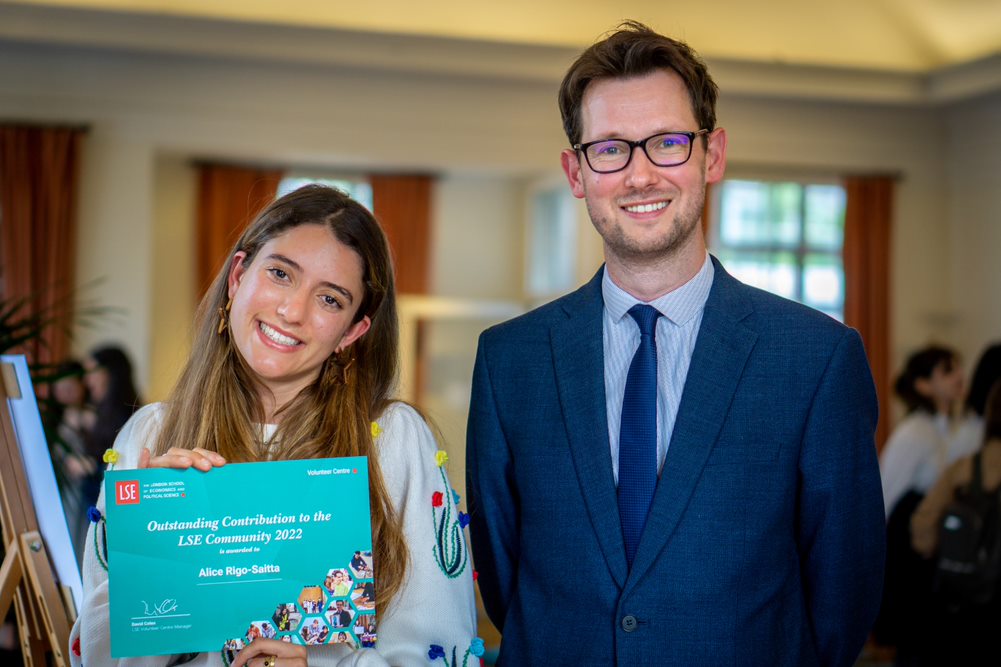Last week I had the chance to attend a talk from Natalie and Naomi Evans – the founders of @everydayracism_, an Instagram page dedicated to educating platform users on anti-racism. They spoke on the topic of ‘Tackling Everyday Racism’, aimed at equipping people with an understanding of the tools needed to be actively anti-racist.
Through the power of social media, Everyday Racism provide a platform for marginalised voices to share their experiences of racism in the UK, as well as creating educational posts on important concepts and terminology related to anti-racism. They have also produced a anti-racism training programme for schools to use and engage with, and they work closely with many schools to help implement this.
Racism does not just exist between individuals, but is structural, internalized, institutionalized, and exists on every level right the way across the globe. In order to build an anti-racist society, we each have to understand our privileges and our contributions, whether intentional or not, towards upholding the ‘status quo’. An important first step in beginning to dismantle these structures and institutions, is to gain a deeper understanding of the roles both individuals and organisations/systems play in continuing racism within our society. For example, white privilege does not mean to say white people do not face difficulty, simply that their race will never be a contributing factor.
The key takeaway from Naomi and Natalie’s talk was that in order to be anti-racist, it is essential to engage in continual active allyship. This can be split into three main categories; listening to marginalised voices, unlearning and relearning our idea of what defines racism, and actively working to influence change.
Listening requires us to understand the stories of those who have experienced racism, from micro-aggressions to violence. It’s not only important to listen to BIPOC in your circle or community, but also to actively search for reading materials, podcasts and documentaries which centre around the experiences and opinions of marginalised voices. This also ties in with the learning aspect of allyship, by engaging with materials produced by anti-racism educators, as well as looking internally and questioning if what you have learnt over the years is a product of the influence of systematically racist institutions – for example, recognising the need to decolonise the British education system.
Finally, and most importantly, working to bring about change is an umbrella for many types of actions; e.g. donating to a charity, voting in elections, campaigning and speaking out on injustices. This is where volunteering can really make a difference.
As an individual, setting up a social media account dedicated to anti-racism education or to amplifying stories of BIPOC voices can be a great way to spread awareness, and can be a stepping stone to using this platform to campaign for change in areas of our society – such as increasing the diversity of employees in the tech and financial sectors, or for mandatory anti-racism training for school staff.
Fundraising for anti-racism projects or charities can also be a way of showing up, but ensuring you are checking in with yourself on the purpose of your work, and the impact you want it to have, is important to guarantee that you are not engaging in performative activism.
In terms of working for charities that are actively working to promote anti-racism, I would argue the UK volunteering sector is currently lacking in having sufficiently many charities specifically involved in anti-racism work. However, an article written by Stylist magazine lists some of the amazing charities dedicated to this cause and describes the work they are engaged with.
For example, Show Racism the Red Card is the UK’s leading charity on anti-racism education. They deliver educational workshops in schools and workplaces, as well as events held at football stadiums, with over 50,000 people each year attending these sessions. Another charity that stood out to me was StopWatch UK – a national organisation working to promote accountable, anti-racist policing, as well as educating people on the discriminatory use of stop and search, and providing individuals who have been affected with legal support.
If Natalie and Naomi have inspired you to volunteer, check out one of our other ongoing opportunities or book a one-to-one with David Coles, the Volunteer Centre Manager if you have more questions. And why not follow us on Twitter, and Instagram to stay up-to-date with our events and opportunities and read our blog for more volunteering tips and stories.






Thank you so much for writing this blogpost! I was really inspired by Naomi and Natalie’s talk and this has inspired me to do more for the community through volunteering 🙂